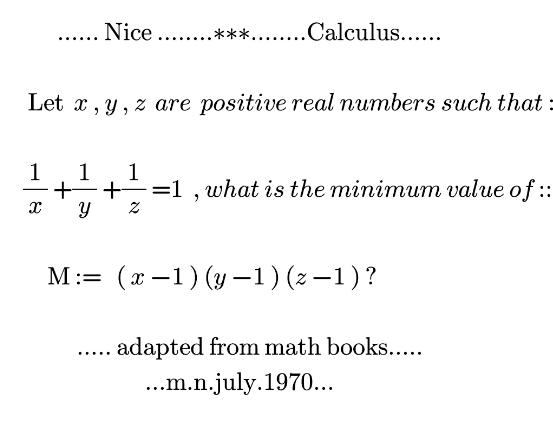
AllQuestion and Answers: Page 750
Question Number 144699 Answers: 3 Comments: 0
Question Number 144697 Answers: 2 Comments: 0
Question Number 144693 Answers: 1 Comments: 0

Question Number 144691 Answers: 1 Comments: 0

Question Number 144684 Answers: 1 Comments: 0
Question Number 144683 Answers: 1 Comments: 0
Question Number 144682 Answers: 1 Comments: 0
Question Number 144663 Answers: 1 Comments: 0
Question Number 144662 Answers: 1 Comments: 0
Question Number 144676 Answers: 1 Comments: 0
Question Number 144645 Answers: 2 Comments: 0
Question Number 144639 Answers: 0 Comments: 0

Question Number 144638 Answers: 1 Comments: 0
Question Number 144636 Answers: 1 Comments: 0
Question Number 144634 Answers: 2 Comments: 0
Question Number 144629 Answers: 1 Comments: 0
Question Number 144622 Answers: 2 Comments: 0

Question Number 144619 Answers: 0 Comments: 0

Question Number 144618 Answers: 0 Comments: 1

Question Number 144614 Answers: 2 Comments: 0
Question Number 144609 Answers: 1 Comments: 0
Question Number 144608 Answers: 1 Comments: 0
Question Number 144607 Answers: 1 Comments: 0

Question Number 144603 Answers: 1 Comments: 0
Question Number 144602 Answers: 1 Comments: 0

Question Number 144600 Answers: 1 Comments: 0
Pg 745 Pg 746 Pg 747 Pg 748 Pg 749 Pg 750 Pg 751 Pg 752 Pg 753 Pg 754
